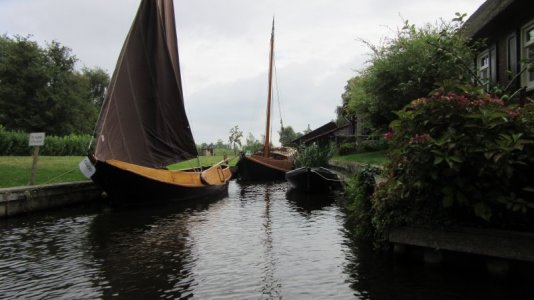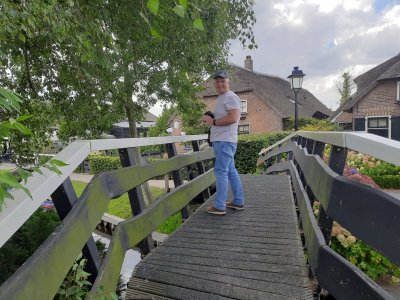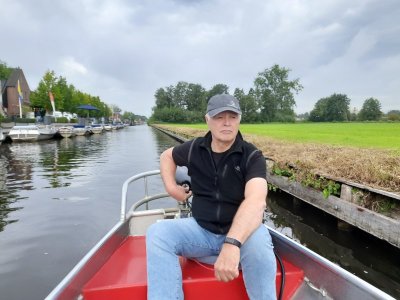What Writing Means to Me
I started writing 'seriously' relatively late in life, but not for money. I publish on Substack. I now have time to do something I enjoyed as a child, even though it was ignored at the time. However, I was passionate about it despite my childish naivety. When I started reading proper books, I stopped writing for a while to learn and experience life. The books I read were culturally and linguistically diverse, both in English and German, and I found value in contrasts and rhetorical subtleties.
I have always enjoyed emotionally engaging stories, so I try to create the same experience for my readers. I like stories with depth and complexity, and I care about my characters and the ethical and social issues they face. I am also interested in the complex dynamics within their world. I am passionate about their struggles, and I can even shed a tear when writing about the tension between survival and dignity in an oppressive environment, for example.
I have always been interested in human relationships, power dynamics, and moral dilemmas, all of which W. Somerset Maugham portrays so well. I'd like to think that I can capture my characters' physical and emotional experiences, drawing on my own varied and nuanced life experiences. The motivations of my characters and the conflicts they face must feel authentic and meaningful.
My dystopian novel reflects my experiences and fears about what could happen in the real world. Dystopian fiction often reflects real-world fears and anxieties, channelling concerns about the future. By creating a world in which societal breakdown, authoritarianism and human suffering are intensified, I explore possible outcomes of present-day problems, which may be political, environmental or social in nature.
These issues are not abstract or distant, but personal and deeply connected to my world and the things I care about. This is my way of processing my concerns, confronting the frightening aspects and trying to warn others or work out solutions. Rather than writing articles, I use a story as a space to express these concerns, combining my fears with creative exploration. You could see it as a form of activism. Throughout my life, I have tried to leave the world a better place. Whether I achieve that is for others to decide.
In a sense, therefore, my writing, especially my recent dystopian novels, forms part of a legacy of thought and action that I hope will help to make the world a better place, or at least raise awareness of where things might be heading. Activism can take many forms, and storytelling is a powerful one. Through my writing, I hope to do more than just tell a story; I want to influence perspectives, challenge the status quo, and encourage others to consider the consequences of inaction or harmful systems.
Fiction, especially dystopian fiction, can act as a mirror and a warning, inviting readers to think critically about the world they are living in and the future they want to shape. Whether or not the wider world acknowledges my efforts, my emotional investment and life experience fuel my work, and I hope they give it layers of meaning beyond mere entertainment.
My current novel is the first in a trilogy. It is intended to form a powerful narrative arc, moving from the struggles of the present generation to a future vision of hope or resolution. By structuring it as a trilogy, I am trying to critique the current state of affairs and explore the long-term consequences and possibilities for change.
The first novel, Seeds of Resistance, lays the groundwork by confronting the harsh realities of a dystopian world and the immediate challenges of survival and resistance. In the second novel, Naomi's Sphere, the transition to the next generation suggests that, while the current characters may not fully overcome the dystopian forces, their efforts are sowing the seeds for future generations to continue the struggle. This progression mirrors real-world activism, where change often takes more than one lifetime to achieve.
In the third novel, Ashanti's Heirs, I aim to offer readers a 'way forward', providing a vision of possible solutions or a better future that is both inspiring and vital in dystopian literature. Without hope, such stories can easily feel too bleak. I hope my trilogy will leave readers feeling empowered and optimistic, showing that, despite the challenges, the fight for a better world continues and is worth pursuing.
I intend to demonstrate that society has relied too heavily on male-centric solutions and has often marginalised female intuition. Matriarchy isn't the solution, but integrating both male and female perspectives is essential for achieving holistic solutions. This is a theme that resonates strongly today, at a time when there is a growing recognition that many historical 'solutions' have been disproportionately masculine. These solutions have often prioritised control, hierarchy, and external power, while sidelining the more intuitive, communal, and nurturing aspects traditionally associated with the feminine.
By not presenting matriarchy as the sole solution, I aim to avoid the pitfall of swinging from one extreme to the other, which can occur in narratives that focus on gender dynamics. Instead, my approach of seeking an integration of masculine and feminine attributes suggests a more nuanced vision — one in which balance, mutual respect, and cooperation between these forces are essential. This emphasis on integration could lead my characters, particularly in the second and third books, to challenge the rigidity of past systems and cultivate a society that is more flexible, empathetic and creative.
We must focus on developing 'real human skills' rather than relying too heavily on technology. This could be described as a subtle critique of our modern world, where technology often substitutes for real growth or connection. In my vision, technology enhances life, but does not replace the importance of human intuition, empathy, and resilience. This is reminiscent of movements that emphasise 'appropriate technology' — tools and innovations that support human life without dominating it.
Wednesday's Child







